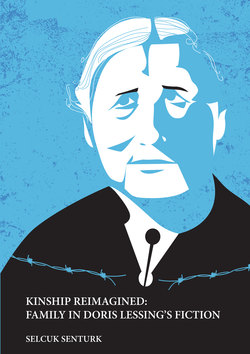Читать книгу KINSHIP REIMAGINED:FAMILY IN DORIS LESSINGS FICTION - Selçuk Sentürk - Страница 8
На сайте Литреса книга снята с продажи.
ОглавлениеPreface
This book focuses on Doris Lessing’s social and political reappraisal of the family. It explores Lessing’s attempt to overcome the restrictions and limitations of the family as an ideological construct through her engagement with three political movements and one mystical philosophy in her fiction: communism, feminism, Sufism, and postcolonial ecofeminism. In Chapter One, the impact of communism on the family is explored in The Good Terrorist (1985) and The Sweetest Dream (2001). A revolutionary movement that challenges normative family arrangements in theory is shown to be ultimately unable to change women’s traditional roles in practice. Chapter Two looks at female discontent and shows how women reformulate their roles within the family in The Summer Before the Dark (1973) and The Fifth Child (1988). Chapter Three focuses on The Memoirs of a Survivor (1971) and Ben, in the World (2000), and suggests that Lessing employs Sufism to transform family and introduce non-normative kinship. Lastly, environmental exploitation is the subject of Chapter Four, which examines how Lessing’s concern for the environment initiates changes in her representation of the family in The Grass Is Singing (1950) and Mara and Dann: An Adventure (1999). The work highlights Lessing’s broadening vision of family by comparing and contrasting two novels from different periods of her career in each chapter. It also illustrates that Lessing’s representation of family develops in three phases: political, mystical and environmental. Overall, the book demonstrates that Lessing celebrates rather than rejects the family. Her fiction envisages alternative family structures and non-normative kinship without being anti-family.
Dr Selcuk Senturk,
Leicester, 2020
